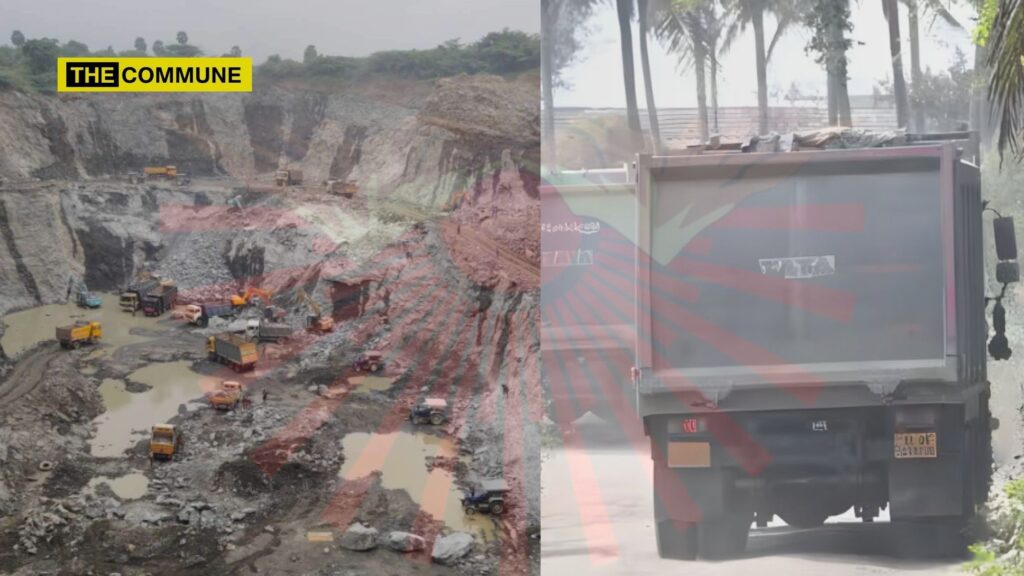Despite widespread condemnation following the death of a social activist who spoke out against illegal mining mafia in Tamil Nadu, the ruling DMK has shown little interest in addressing the issue. Illegal mining operations continue unabated, with criminal mafia gangs exploiting the state’s resources with apparent impunity, backed by the support of the administration. In Coimbatore district, for example, a new wave of illegal mining activity is taking place, with multiple gangs vying for control of the quarrying sector.
According to a report by Dinamalar, the “Karur team” has resurfaced in Coimbatore’s quarries, competing with the “Pudukkottai gang,” which has ties to the ruling party. This has apparently led to unrest in the mineral resources industry. The district has 74 quarries in the Kinathukadavu taluka, 32 of which have been abandoned, while 42 are still operational. These active quarries, including those in Arasampalayam, Vadaputhur, and Muthur, which are plagued by severe violations, causing significant problems for local farmers and the public. Despite numerous complaints to authorities, no action has been taken to curb these illegal activities.
These violations include exceeding the government’s permitted mining limits, using trip tickets multiple times, and overloading tipper trucks with minerals, resulting in extra charges of ₹400 per unit. The Pudukkottai gang has been extorting money from quarry operators in Kinathukadavu, while the Karur gang has now entered the scene to compete for control, collecting ₹400 per unit from each quarry. This extortion is raking in an estimated ₹10 lakh per day, as up to 500 trucks transport minerals from these quarries to Kerala and other parts of Tamil Nadu.
The gangs have also gained control over the trip ticket issuance process, which should normally cost ₹1,600 per ticket. Instead, they have raised the price to ₹2,700, pocketing an additional ₹1,100 per ticket. This results in a daily illegal income of over ₹5 lakh in the Kinathukadavu area alone. In some cases, quarry owners who attempt to operate legitimately are denied trip tickets, while those who cooperate with the gangs are promised consistent payments. If quarry owners resist, they face threats and heavy fines.
The government’s response has been lackluster, as officials from the Mineral Resources Department, the police, and other agencies turn a blind eye to the situation. Meanwhile, new quarry licenses are being denied, exacerbating the issue. As a result, the price of stones has surged, with the cost of a unit rising from ₹1,300 to ₹1,800, putting pressure on construction companies.
One quarry owner shared that operating a quarry honestly is becoming increasingly difficult due to pressure from high-ranking political figures. Many government officials, influenced by party members, are said to be overlooking illegal activities, such as reusing trip tickets for multiple days. This results in significant financial losses for the state. The parties involved even “take care” of the officials who turn a blind eye to the violations, while those who resist face the threat of transfer.
Moreover, the amount of minerals extracted from these quarries is routinely inflated. For instance, the quantity of minerals loaded onto trucks is double the allowable limit. Minerals extracted under the Kinathukadavu pass are transported to Kerala through various check posts, with the load often exceeding the prescribed amount by a large margin.
(With inputs from Dinamalar)
Subscribe to our channels on Telegram, WhatsApp, and Instagram and get the best stories of the day delivered to you personally.

